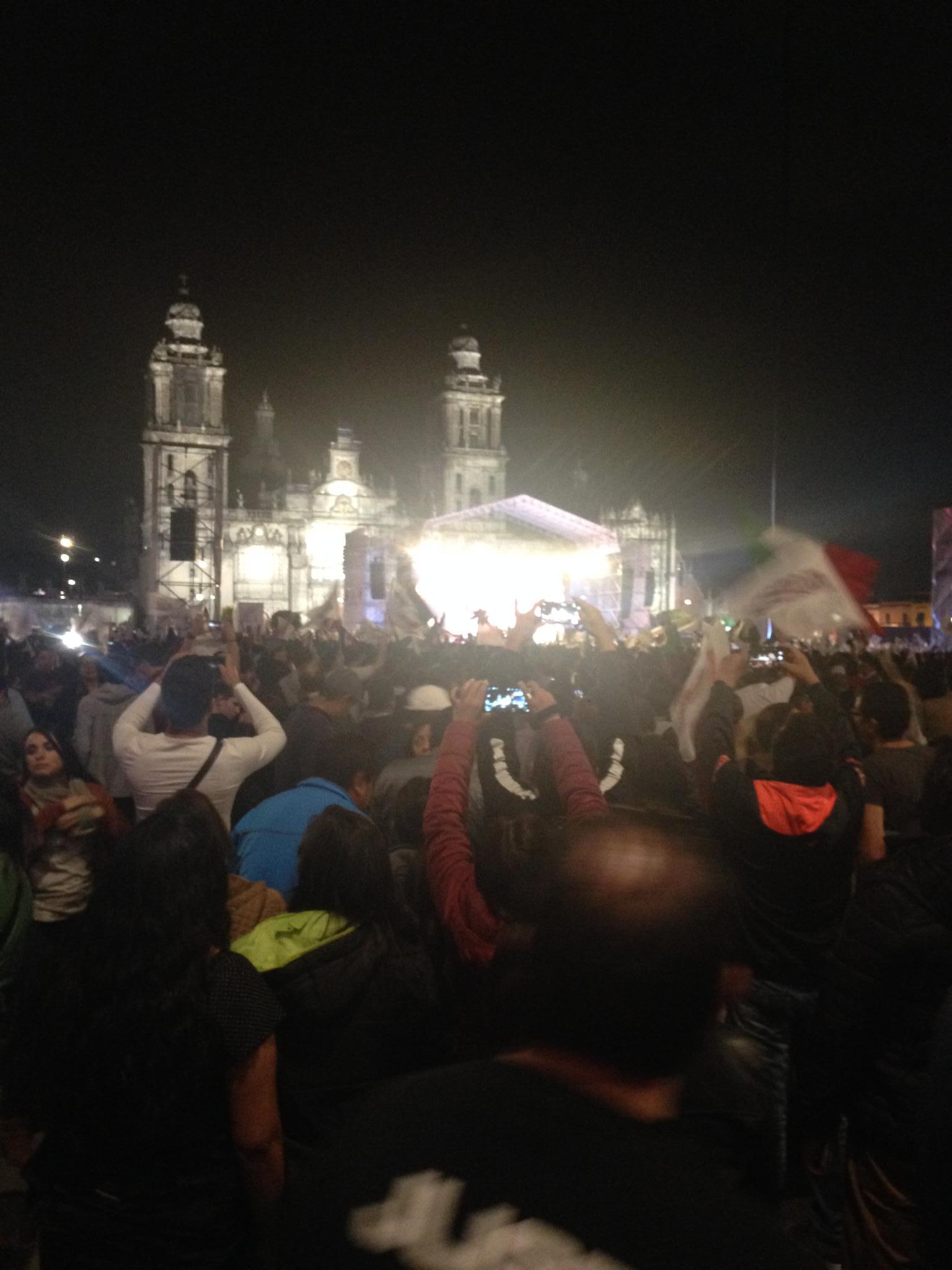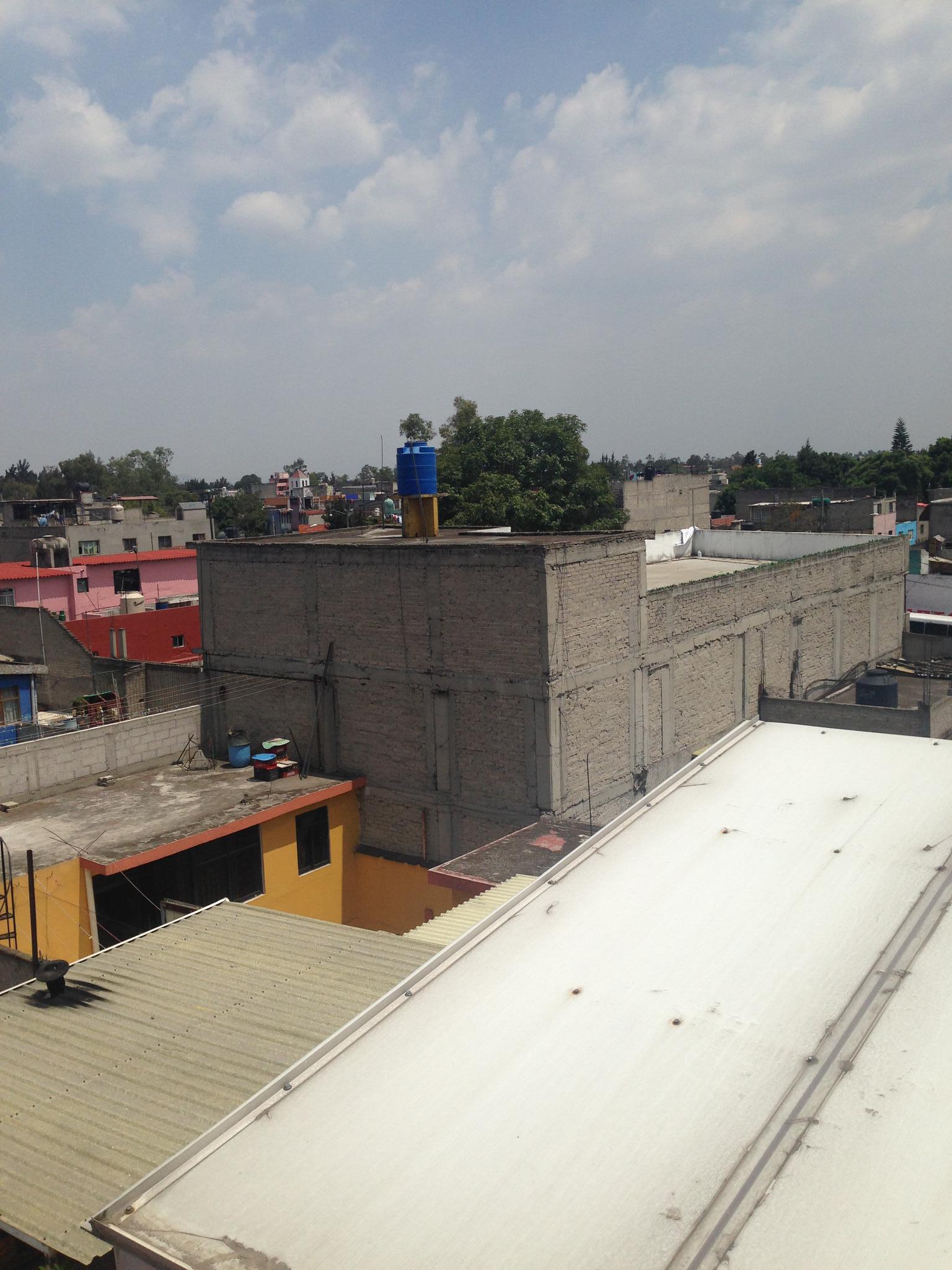Four Dollars a Day, Walmart, and Paying to Pee
What low wages, an invasion of multi-nationals, and a lack of public restrooms tell us about the challenges to achieving economic dignity and racial equality in Mexico
This is the second article in a multi-part series on Mexico. This and the first article look back to Mexico at the time of AMLO's election in July 2018. The third and final article looks at AMLO's first two years from the perspectives of multiple Mexicans.
Mexico City
July 2018
“Pena Nieto is the worst president we have ever had in Mexico. Did you know that he is gay?” says our Uber driver in Mexico City. I did not know he was gay, nor did I know that that made you the worst president in ever. I did, however, know that Pena (pronounced Penya) was a widely despised, worse than George W. Bush president finally on his way out of office in a number of months. AMLO had just been elected president of Mexico, and the mood for change was in the air. (I must note, however, that this gay-hating Uber driver did not like AMLO any more than Pena. He did not comment on AMLO’s sexuality, however.)
The day prior, AMLO was elected president of Mexico, carrying all but one state in Mexico. We stay with our friend’s family in their single-family home. As stated before, a single-family home in Mexico can house an extended family, and this is no different. Grandma, cousins, and an aunt all live with our friend Christian, his parents, sister and girlfriend. Everyone is overjoyed that AMLO won. “We have finally won the presidency,” says Christian’s mom when the election is called for AMLO. The “we” means the common people, the lower-middle classes (like this family), the 50-percent of Mexico living in poverty. She, along with all of Christian’s family and friends, all believe (with reason) that Pena Nieto was fraudulently elected which is just part of a long Mexican tradition of election rigging. Pena’s six awful years have been marked by humanitarian catastrophes and corruption scandals (also part of a long Mexican tradition). Of all the reasons Pena was a terrible president, possibly being gay did not rank very high in Christian’s house.
After AMLO is declared the winner, five of us pack into a small sedan and drive to Mexico City’s famous zocalo (the square in the center). Horns are honking, people yelling, and many had on T-shirts that said “MORENO”, the name of AMLO’s political movement. The zocalo is totally full. People look like it is the happiest day of their lives. I am reminded of how I felt in 2008 when Obama ended eight years of the Bush disaster. I think about how I hope I get to experience something like this again in 2020. I do know, however, this may be the only time in my life I actually get to go to the victory party in person.
We wait and wait, but AMLO does not come out. It is a Sunday, and our hosts must work in the morning. Reluctantly, we head home since it is fast approaching midnight. Ten minutes after leaving, we hear on the radio that AMLO is speaking. How close we got to seeing the man in the flesh. But it matters not. AMLO won, Pena will be packing soon, and there is a new hope for a troubled country.

Staying out late and skipping work to watch AMLO is not an option for Mariana, Christian’s girlfriend, because she has a small-business to run the next day. She and Christian’s cousin, Eric, run a small print shop. They make prints, cards, mugs, and other customized items for graduations, weddings, and businesses. Their business has been going for about a year and doing well enough to stay alive. The mugs and prints they make are the same things Costco makes for my dad, I think. I hope against hope that Costco does not start doing the same thing in Mexico.
The key to our friends’ business is that they do not owe money to banks. Family members have contributed money, which gives them a percentage in the business. Banks and other lending enterprises in Mexico and Latin America generally charge exorbitant interest rates to small businesses. In Cartagena, Colombia, we found a foundation charging 30 percent per annum to small businesses. In Nicaragua, people told us the rates were similarly high. Mexico’s banks charge a lower rate just above 10 percent annually on average but foundations may charge up to 80 to 120 percent.
Moreover, since many people do not have formal businesses or loans, they are not able to build up credit. If you do not build up credit by creating formal businesses and building credit, borrowing is more expensive if you decide to access bank loans for the first time or go through alternative lending institutions. A chicken or the egg problem.
The business is modeled on Mariana’s sister’s business, who owns a small-time print shop in the State of Mexico, about an hour away. Mariana’s sister and Mariana have both seen small businesses succeed and fail. Her mother used to make and sell mattresses, which did very well until the 2000s when chain stores started selling mattresses at lower prices and on credit. Her business went bust. Likewise, Mariana’s father had a small business that failed. He now works as a security guard and mom is unemployed. Mariana’s sister lives with her family in the parents’ house and runs her business there. Like Christian’s family, an extended family under one roof, all supporting one another. It is hard for the young generation to afford their own homes. It is equally hard for the older generation to meet their expenses alone.

Despite seeing the boom and bust of business in their own family, Mariana and her sister are hopeful their enterprises can be successful. There is a lack of other alternatives. Despite graduating from UNAM in economics, the top university in Mexico and by some counts the best in Latin America, whether by choice or not Mariana has never had a job in a company. A fellow classmate of the same major, Natalia, is in her mid-thirties with a decade of business experience.
Natalia works at a Spanish-owned company making 12,000 pesos monthly (632 dollars in July 2018). The Spaniards in her company make upwards of 50,000 pesos a month. A Spaniard at the company wrote a denigrating email to a Mexican coworker that insulted Mexicans’ abilities and work ethic. Natalia says foreigners just see Mexico as a cheap place to do business and have little respect for the people or culture. Mexicans need not accept this treatment, but they do, she says. Mexicans must be proud of their nation and their culture.
U.S.-owned WalMart is the second largest company in Mexico. McDonald’s operates ubiquitous dessert stands throughout the capital — both above and below ground, in the metro. Mariana shrugs when I bring up the McDonald’s dessert stands everywhere. “At least it creates jobs,” she says. “For 80 pesos a day per person!” retorts Christian, referencing the minimum wage of 2018 (a little over four dollars a day).
Eighty pesos a day is the best many Mexicans can hope for (the minimum wage has since gone up to 123 pesos a day starting in 2020, or 5.50 USD at the exchange rate of July 2020). Mariana mentions she read that only 1 percent of children in her native State of Mexico graduate from college, on average. One hundred children enter kindergarten, one of them graduates from university. People working two jobs is the norm. One Uber driver has a full-time job as a bus driver and drives Uber the rest of the time. Life is work. His wife works in a cleaning supply store. In the past, she raised their kids. Now, inflation has outpaced wages. Between the two of them, they have three low-paying jobs.
In addition to the fact she and Christian’s family own a business, Mariana has another advantage — she is relatively light-skinned (even though her mother looks much darker than her). Would Mariana be at a disadvantage in business if she was darker? Impossible to answer for sure, but it is a fact that Mexican racial inequalities mirror (or create) socio-economic inequalities. People selling gum and cigarettes on the street are almost always dark.Those in the service sector almost always are, too. We take a boat ride on an ancient Aztec canal in Mexico City one Sunday. The rowers were universally dark, and the customers quite light-skinned. The customers enjoyed the canal, as almost all got extremely drunk. Many urinated off boats in public.

While I did not drink at the canal and thus had no toilet issues, I drank too much water one day while wandering around Mexico City. Not wanting to spend 10 pesos to relieve myself (in Latin America, it is nearly universal to pay for public toilets), I wandered into the Hilton downtown and acted like I belonged. It was not hard since I was white. Being white makes you feel like you belong in expensive, high-class places. A cycle, I think. Virtuous for one side, vicious for the other. Certainly unfair.
I did my business and left. I reflected on how most Mexicans, who are dark or mestizo (mixed) would not be able to do what I just did. They would have to spend one eighth of their minimum wage to relieve themselves. I, who earn 400 dollars every workday, saved 50 cents thanks to my skin color.
Some of the names of people featured in this article were changed to respect their privacy.
